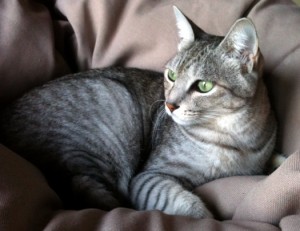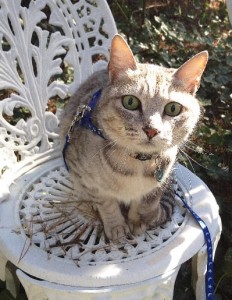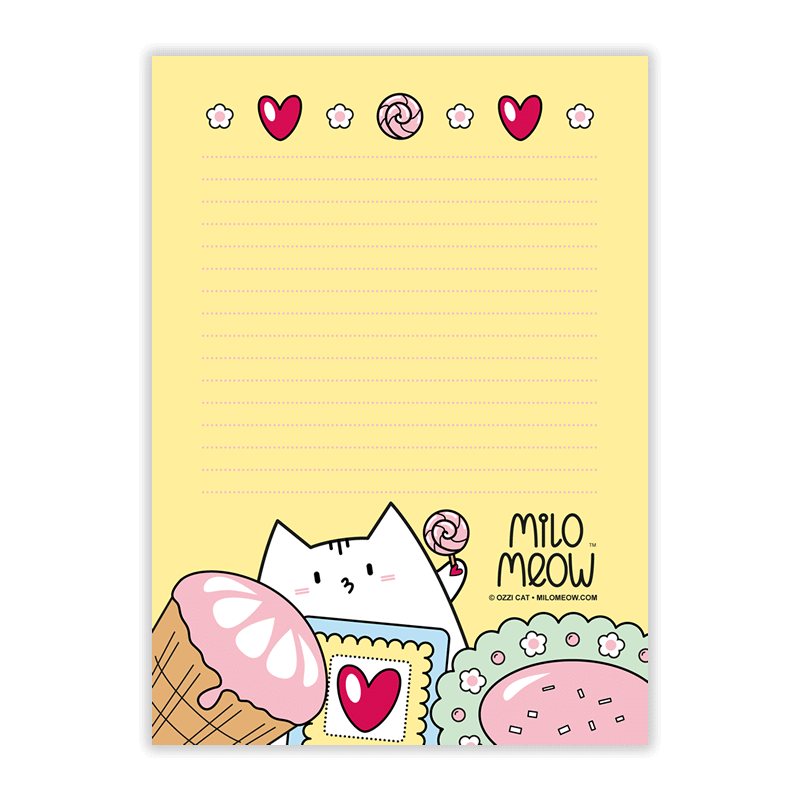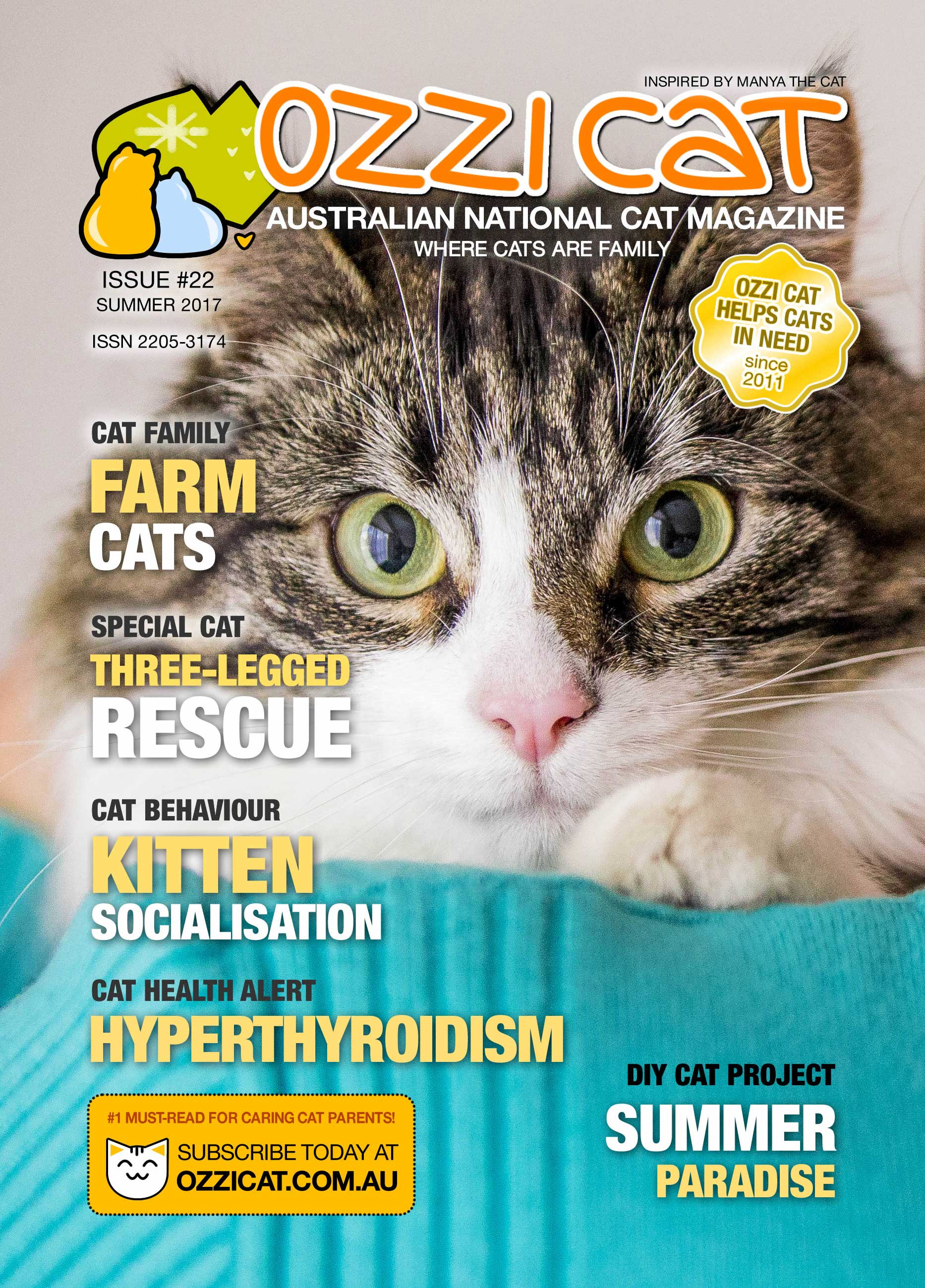Cat Info
we might get a small commission if you choose to order through the links provided
Feline Fit at Thirty-Six: Cats and The Ageing Process
A wonderful story about similarities between ageing cats and people, about what a cat owner needs to pay attention to when their cat is getting older. Thanks Carla Francis and a lovely cat Gershwin for sharing their personal experience with cat lovers!
What’s in a number? Well, these days, it would seem quite a lot. It’s often said that thirty is the new forty, and according to urban pet myth; five in cat years equates to thirty-six in humans!
So, with my cat’s fifth birthday fast approaching, I have begun to pay particular attention to my four-legged friend’s ageing process and how closely it resembles my own. Too old to stay out all night, but still young enough to want to have some fun, I am noticing how his behaviour mirrors my own. My little mate is increasingly picky about his food, enjoys sleeping more and going out less; curling up next to the fire, preening his silver whiskers instead of chasing after meaningless things. But is this where the parallels end? As I started to think about the advice humans are given to ensure a long and healthy life I wondered if the same could be applied to cats too?
While I would be commiserating about becoming the wrong side of thirty-something, Gershwin would be celebrating the tender age of five, which is one of the same – a year in a cat’s life is equal to seven in a human’s. Gershwin, a pescartarian puss with a penchant for prawns, leads a healthy lifestyle, manages to lay off the booze and is extremely active, but I’m not so sure you would call his diet a balance one.
Concerned with the fact my fish-loving friend was quite literally becoming long in the tooth I sought some professional advice on the matter from vet Dr Marcos Serrano. Unfortunately, for my fish-fanatic feline his current diet will have to change as it doesn’t fulfill his dietary requirements. Marcos suggests that, “A proprietary commercial cat food is recommended for at least some of a cat’s diet”. So it’s off the prawns and back on the Purina!
When asked the way to enhance a cat’s health Dr Serrano recommends desexing to ensure a long life and considers it a top priority as this procedure can mean, “Cats live on average about four years longer if desexed. Due to the natural instincts of cats to roam and fight over territory getting a cat desexed can prevent this. Studies have also shown that it can also almost eliminate breast cancer, testicular tumours and behavioural issues”.
In addition, two more similarities between cats and people are teeth and weight. Dr Serrano says that, “poor health and being overweight can significantly reduce longevity”. So make sure your kitty isn’t a couch potato and gets his or her teeth checked regularly. According to the vet “it is recommended that cats get a check up every six months and a full blood screen every year after age eight. Cats do age quicker than people, and these measures can detect and manage things like kidney disease and cancer early”.
When asked if there was any truth in indoor cats outliving their outdoor counterparts Dr Serrano confirmed this, “statistically indoor cats live longer – cars and fights are the main dangers. However, many cats do enjoy being outside so a happy compromise is the use of a netted cat enclosure. Also, indoor cats don’t kill wildlife so that’s another good reason for them to stay indoors”.
In terms of the creditability of the human/cat age chart it depends more on the breed of the individual cat, “A domestic shorthair moggie can live up to 20 plus, but pure breeds don’t generally live as long – mid sometimes late teens. If the average human lives to 70-80 years old and the average cat life span is say 15, makes it more like 5-6 human years, it’s a bit of a gimmick really”, says Dr Serrano.
As for the future, it’s safe to say Gershwin and I won’t be staying out late anymore or getting into fights, which we all should avoid if we want to live a long healthy life. But rather, going for regular blood and dental check ups and eating a balanced diet to ensure we stay fighting fit at five, thirty-six, and beyond.
What a Cat Story!
Do you like it? Was it helpful? Share with others!
What’s Next
Buy the latest Cat Magazine Issue!
Share your cat story, experience and advice with cat people.
Subscribe to free Email Digest to be notified on recent wonderful cat stories.
“Like” Ozzi Cat on Facebook to join our awesome cat lovers community.

















Neamul NahidApril 24, 2013 at 6:49 pm
Excellent, especially very helpful for me. Thanks. Check this for more about Diabetes cat http://www.forcatshealth.com/
Ozzi CatApril 24, 2013 at 9:45 pm
Thank you for the comment Neamul. Glad it was helpful. Do you have a diabetic cat? *Natalie